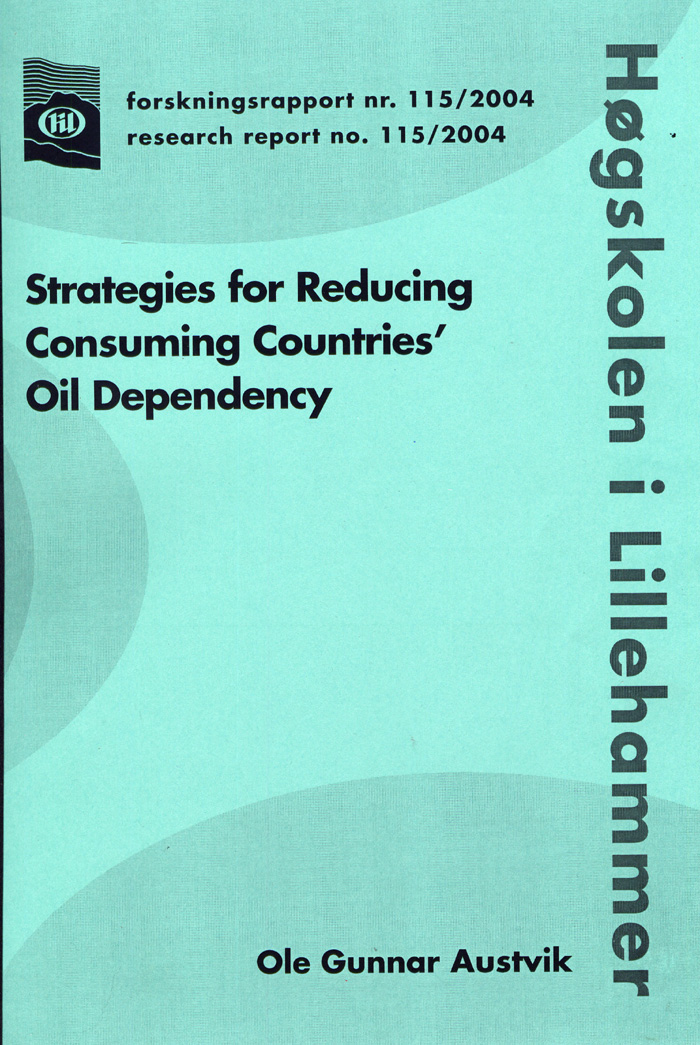 |
Strategies for Reducing Consuming Countries’ Oil Dependency Report no 115 Lillehammer
University College Mai 2004 46 pages
Presented at “Energy
Policy” Editorial Board Meeting (Elsevier
Science);
|

|
ABSTRACT:
The model presented demonstrates how environmental externalities as a result of increased production in more vulnerable and high cost non-OPEC areas can be evaluated together with the security-of-supply import problem from OPEC (Persian Gulf). Various policy options for consuming countries to deal with the dependency problem are discussed. On the fiscal side, import tariffs and excise taxes on consumption are focused as means to reduce dependency in the longer-term. On the market intervention side, weight is assigned to the role of strategic stocks and other IEA measures as means to reduce price fluctuations in an emergency situation. When it comes to the use of physical power, military means and diplomacy are discussed as options to secure supplies from the PG area.
Through policies already implemented, consuming countries are now in a much stronger position in the oil market than before the 1973 shock. By developing them further, they may continue to shift much of the market power producing nations achieved during the 1960s and in the 1970s, to themselves. On the other hand, physical dependency on Middle East oil will increase and make oil-consuming nations increasingly more vulnerable for the instability of the region.
Keywords: Oil dependency, Oil import, Middle East, Iraq war, Persian Gulf. Oil import fee, Strategic petroleum reserves (SPR), Gasoline tax, OPEC, IEA
See also this report from 1989 on the same issue.
.